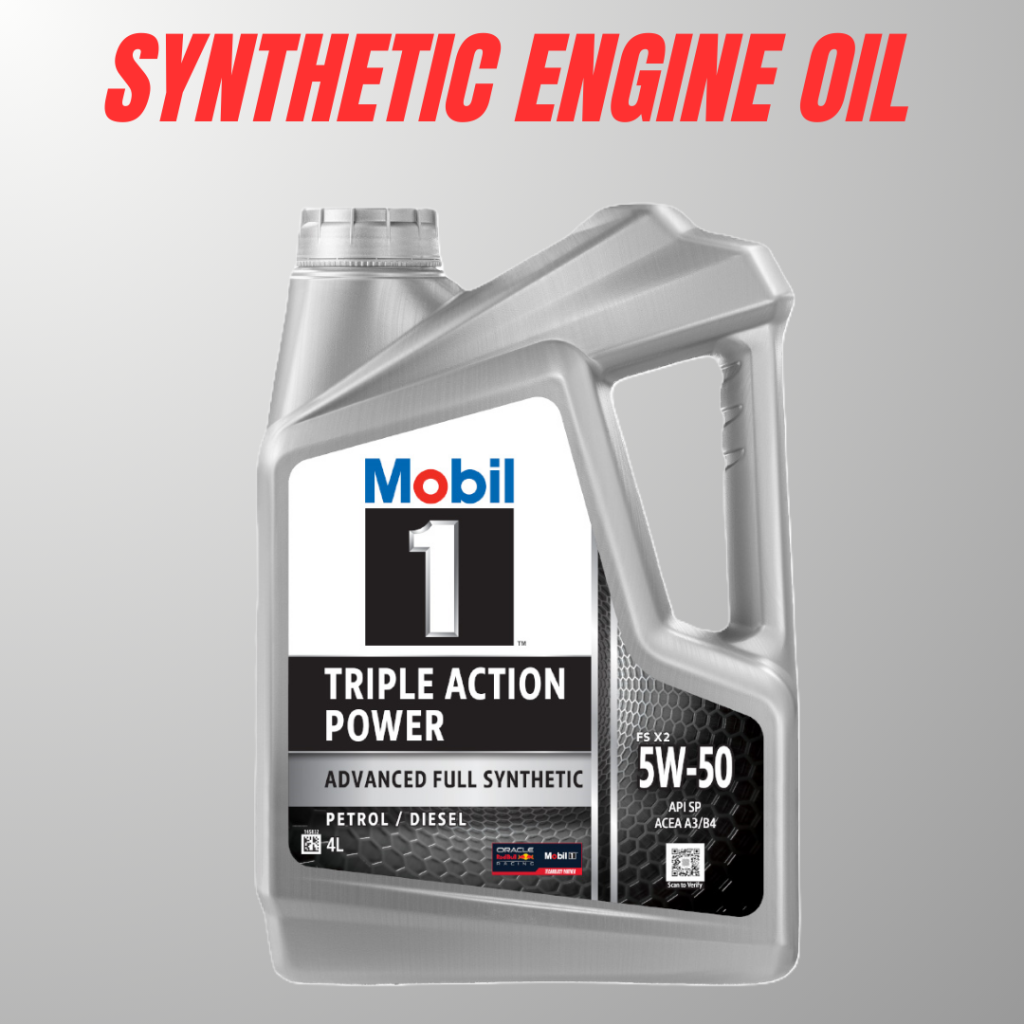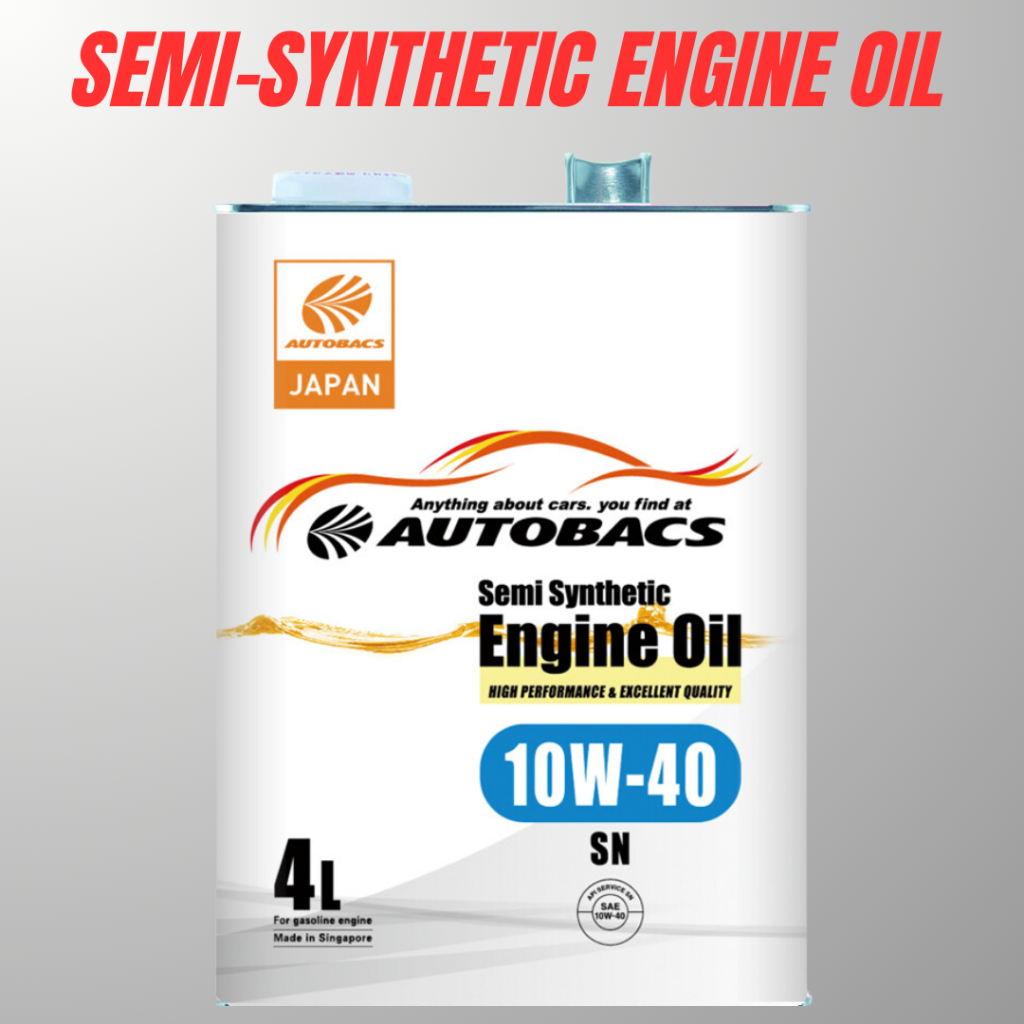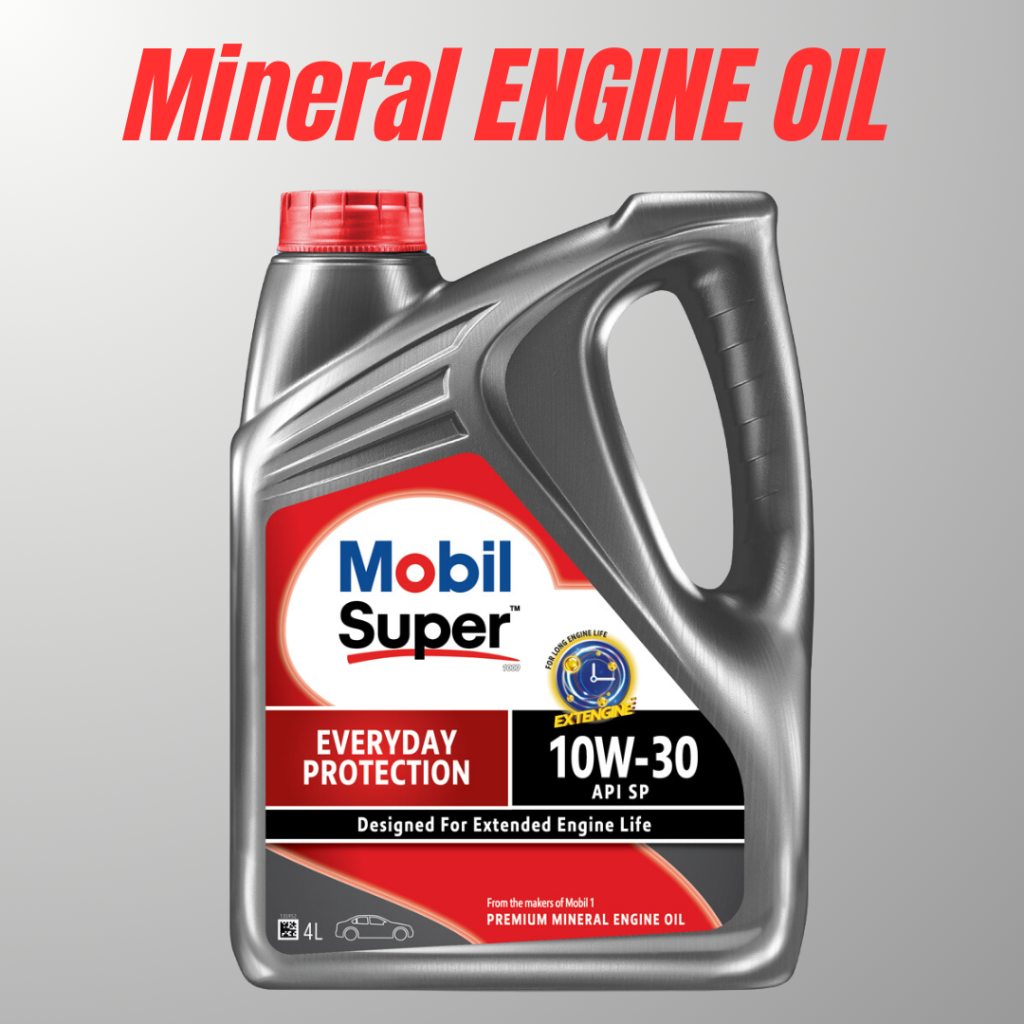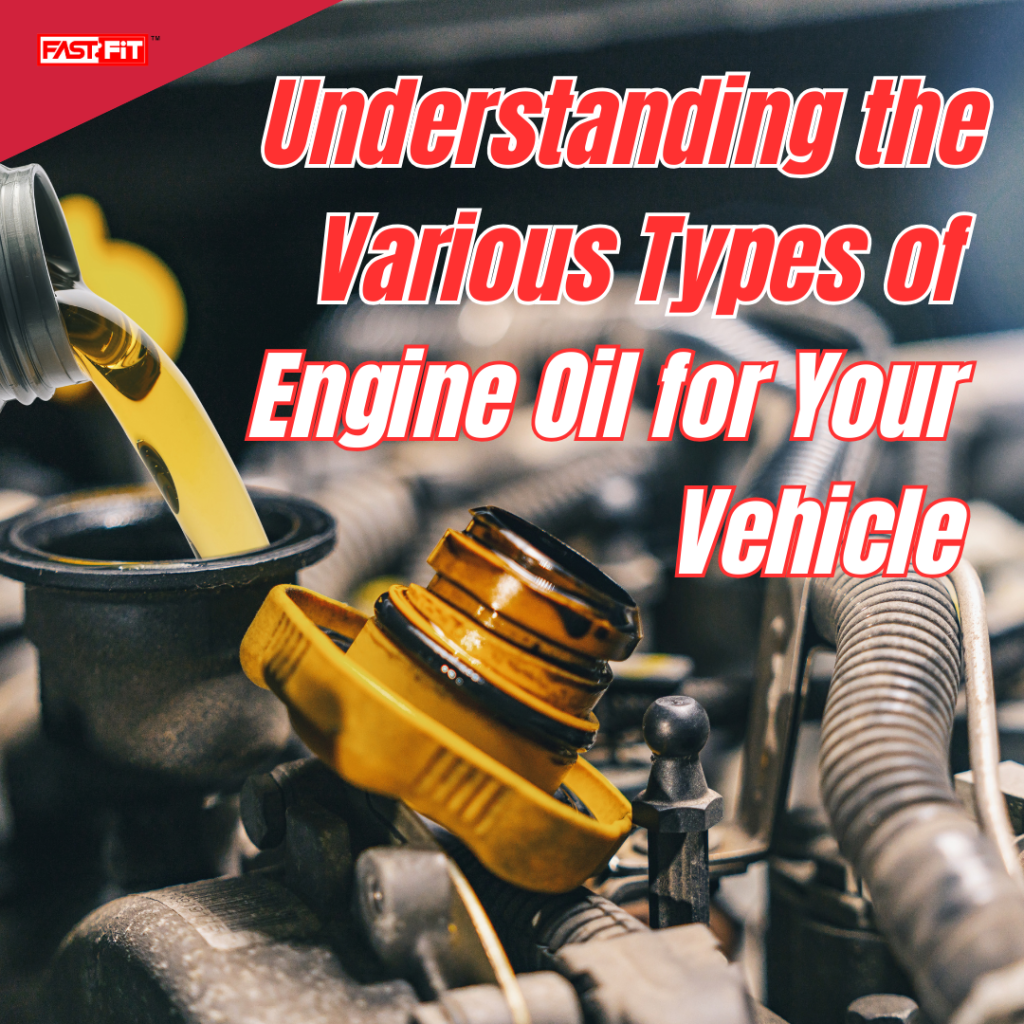
Synthetic
Chemical engineering is done in a lab to make synthetic oil more reliable and effective. It can resist extremely hot temperatures and effectively reduce friction. Its chemical components help your car by boosting horsepower and fuel efficiency. For vehicles that require optimal performance, synthetic oil is frequently advised. Synthetic oil’s extended lifespan—it may last you 10,000 kilometers before needing to be changed—is its most appealing feature.

Semi-Synthetic
Combining synthetic and conventional base oils results in semi-synthetic oil. Although it costs less, it offers many of the same qualities as full synthetic oil. It can function better at high temperatures and assist withstand oxidation with additions. Approximately 8000 kilometers should pass between semi-synthetic changes for drivers. When switching a car from conventional to totally synthetic oil, this kind of oil is also used a few times.

Conventional (Mineral)
The most conventional kind of oil is this one, which is available in several grades. For older cars with simpler engine designs, conventional oil is advised because it is less expensive. The change interval should last anywhere from 4,000 to 5,000 kilometers.













